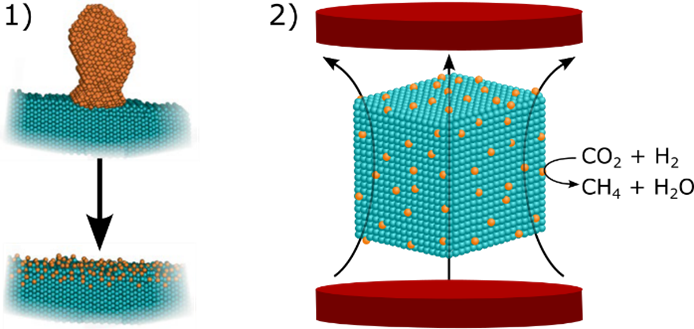Metallic deposition of magnetic nanoparticles for magnetically induced catalysis
This project develops magnetic catalysts by growing Pd on Fe nanoparticles and exploring Pt precursor interactions. Using magnetically induced heating and advanced microscopy, it aims to reduce precious metal use and improve catalyst efficiency.
Groups
Research themes
Project status
Content navigation
About
Catalysts play a vital role in over 80% of chemical processes and underpin a multi-billion dollar global industry, from fuel cells to pharmaceuticals. Reducing the use of costly precious metals like palladium is critical for developing affordable catalysts. While Pd is highly active, it is also scarce and expensive. Most catalysts also require significant energy input, creating a need for more efficient heating methods. This project explores magnetically induced heating as an alternative, using superparamagnetic nanoparticles that also act as catalysts. Specifically, it will grow Pd on zero-valent Fe nanoparticles and investigate how different Pt precursors interact with Fe(0) made by various methods. By combining advanced synthesis and microscopy, the project will reveal how synthetic conditions influence structure, advancing the design of magnetic catalyst materials.

Decoration of magnetic nanoparticles with catalytically active Pd atoms for magnetically induced conversion of CO2.
